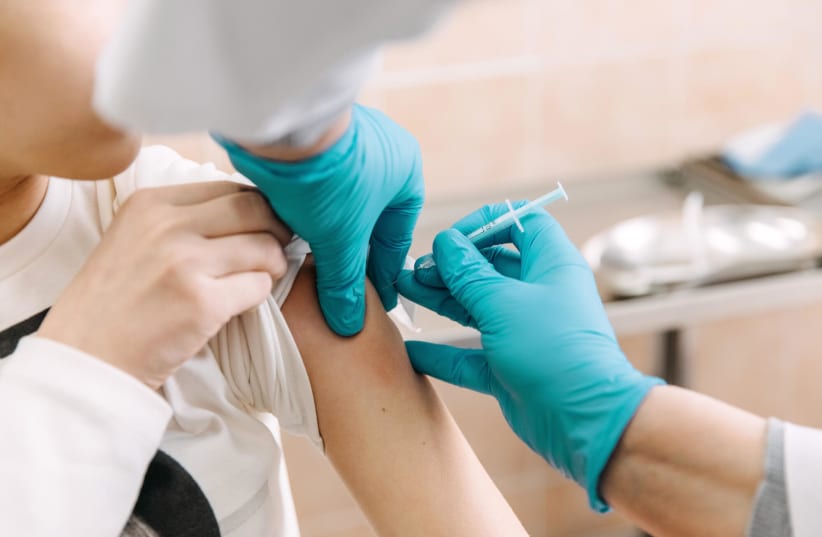he COVID-19 pandemic is one of the biggest disasters humanity has undergone in the past century, and it presents a number of tremendous challenges. It is a medical challenge to develop a vaccine and a cure for the coronavirus, and it is an economic challenge to overcome the financial ravages caused by the pandemic.
COVID-19 may not be here forever because, like all pandemics in history, they eventually pass on. The same will happen with the coronavirus, especially since vaccines are on the way. But in the meantime, corona is very much a reality, and vaccine or no vaccine, it will take time to eradicate the pandemic and its scathing effects on our daily life. According to expert opinion, the global population will have to continue to deal with the virus until at least the second half of 2021.
A looming lockdown
That is not good news for the economy. In Israel, the number of positive coronavirus cases continues to rise, and that means that a third lockdown may be in the cards. A third lockdown is very bad news for the economy as a whole and for commerce in particular.
The coronavirus has had a very negative effect on cafes and take-out counters that sell snacks and soft drinks. Unlike restaurants, which can deliver full meals, it is not practical for take-away facilities to deliver sandwiches.
One of the solutions is a mobile snack bar. Barak Migdali is the marketing manager of the company Paz Food Trucks. He explains, “COVID-19 has greatly increased demand for mobile snack bars. They are generally located in remote areas such as nature beauty spots. Now food trucks are regarded as a means to stay in business for take-away counters that have to operate under the current restrictions.”
COVID-19 spreads from person to person, usually via close contact.
According to the Israel Center for Disease Control, simply being near an infected person who coughs, sneezes, or talks can expose one to the viral respiratory droplets. If those particles land in one’s eyes, nose, or mouth or if they are inhaled into the lungs, one could become infected. People might also contract the infection if viral particles get on their hands by, say, shaking hands with someone whose hands are contaminated with the virus, and then touching their eyes, nose, or mouth.
The anatomy of a construction tent
The kinds of tents we are familiar with are usually associated with the military or with holiday camping trips. But the tents in question are called construction tents. They are large, solid tents. They are usually heavy-duty structures with a rigid skeleton, usually made of aluminum, and a draped material such as hemp or canvas that will enable it to withstand strong winds and heavy rains in winter and high temperatures and high levels of humidity in summer. The tents are usually constructed over a building site or other work environment in the open air.
One of the ways for businesses to continue to operate in the current challenging environment where social distancing is the order of the day is to virtualize as much as possible and to increase the number of tasks that can be performed off site.
Lior Ezra, the CEO of the Callbiz call center, explains how it is possible to combine both.
“The way to increase social distancing in one’s place of business is to decrease as much as possible the number of staff members working onsite. This can be achieved by outsourcing many of these tasks, such as secretarial work, via a remote control arrangement. For example, a data center can maintain a certain level of the human element in a virtualized environment.”
A protective cover to help businesses recover
Now construction tents can help businesses overcome the effects of a lockdown. They can help them continue to operate under practically normal circumstances during the pandemic.
Nati Ahituv is the CEO of Tento, a company that supplies construction tents. He explains, “At these times, there are more practical ways of making use of tents, which is the reason for the increased demand. Many contractors want to protect their workers from wind and rain in winter, but at present it is not only the weather that is driving up demand. It is also the COVID-19 pandemic.”
The coronavirus pandemic requires a high degree of social distancing, especially in closed indoor environments. Consequently, commercial enterprises, as well as hospitals and governmental institutions, are interested in erecting construction tents adjacent to their regular establishments. There, people can congregate in spacious, semi-open air facilities. They can keep a safe distance from one another in an environment where fresh air flows unimpeded, thereby minimizing their chances of being infected by the virus.
The construction tent is an economical way to provide patrons with a relatively large area in which they can conduct their activities in a well-ventilated space while maintaining an acceptable degree of social distancing while being protected from any inclement weather conditions.
How to ensure the health of your place of business
Technology has come to the aid of businesses that want to ensure that their staff and clients remain healthy. Yaniv Peretz is the VP of marketing for Nakipo. He says that a fever screening system is now on the market that blocks the entrance to the premises of people who have a fever or are not wearing a mask. The scanner also makes a list of the level of fever of all those who entered the premises.

